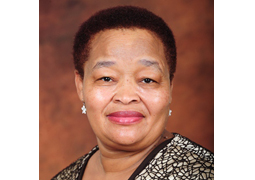
Venue: North West Legislature Auditorium (Hybrid Session)
Date: 21 May 2022
Premier of the North West
Speaker of the North West Provincial Legislature
Members of the Executive Council
Members of the Legislature
Members of Parliament
District and Local Government Mayors
Distinguished Guests
Ladies and Gentlemen
It is an honour and privilege to welcome you to the Women’s Charter for Accelerated Development, Report Back Session. We are meeting immediately after the National Council of Provinces has adopted the Division of Revenue Bill, which provides for the determination of each province’s equitable share of revenue and for any other allocation to provinces, local government or municipalities from the national government’s share of the revenue.
The division of revenue bill is the most comprehensive statement of government’s social and economic plans and priorities. In tracking the flow and use of financial resources, gender responsive budgeting can determine how public funds are raised, how they are used and who benefits from them.
Therefore, implementing commitments towards gender equality requires intentional measures to incorporate a gender perspective in planning and budgeting frameworks and concrete investment in addressing gender gaps.
We hope and believe the province will use their share of the division of revenue to incorporate a gender perspective into the design, development, adoption and execution of all budgetary processes, as appropriated, in order to promote equitable, effective and appropriate resources allocation.
In seeking to strengthen efforts to enable the institutionalisation of gender sensitive –good governance norms and practices, Parliament has successfully completed its nation –wide 25-year review of the 1994 Women’s Charter for effective Equality.
The review process was undertaken in collaboration with strategic partners and stakeholders across the three spheres of government, Chapter Nine institutions, academics, civil society organisations, women’s formations, as well as ordinary South African women across the country.
From 2019 to 2021, we embarked on a review process to review the entire women’s rights regime, in order to assess the efficacy of existing systematic and institutional mechanisms, across the three spheres of government, in order to advance the realisation of gender equality.
The review engagements have explicitly exposed the glaring gap between policy and practice and the disjuncture between public endorsement of gender equality and actual institutional practice.
The review process has also exposed how institutions charged with the responsibility to advance gender mainstreaming are no longer appropriately designed, capacitated and managed.
Most of our state institutions suffer from the displacement of technical competencies in the core business and the management of its operations.
Many of the present managers and leaders are not systems thinkers. They are transaction-driven interventionists, who invariably break systems, hence gender transformation is slow or non-existent.
The direct consequence of broken systems and the decline in core business capability has led to the non-implementation of the precepts of the 1994 Women’s Charter for effective equality and many other women’s transformational legislation, adopted by our country.
Broken systems to advance gender transformation has led to performance that is erratic, that is impaired, that is incoherent and poorly coordinated.
Honourable Members, the basic framework of our democratic achievement in South Africa is irreversible, but it can be derailed leaving us with a shell of political rights, without real social an economic content.
The Women’s Charter for Accelerated Development, therefore represents the third strata of gender equality manuscripts in South African history, having been preceded by the 1954 and 1994 charters respectively.
The Women’s Charter for Accelerated Development serves as the Demand Document for the Women of South Africa, articulating matters for urgent prioritization by the three Arms of the state, the three spheres of government, including all Sectors of Society. The revised charter will serve as a road map for effective policy re-design and implementation going forward.
Conclusion
Honourable Deputy Speaker and members of the executive council, Parliament is embarking on a sustained and targeted Oversight and Accountability campaign, to oversee the implementation of the 2021 Women’s Charter for Accelerated Development, through a quarterly report back session.
In keeping with the pledge we made during the review process of following-up-on our commitments, Parliament is embarking on a process to track progress made in implementing the undertakings made in the North West High-Level Session and including the provisions of the women’s charter for accelerated development.
Given the negative impact of the COVID 19 pandemic on women’s socio economic status in South Africa, we must recognise that there has never been greater urgency to enact-delayed reforms to reverse state decline in advancing gender transformation. The top leadership of the country need to take hard decisions to accelerate, advance and deepen gender transformation.
I thank you!!

